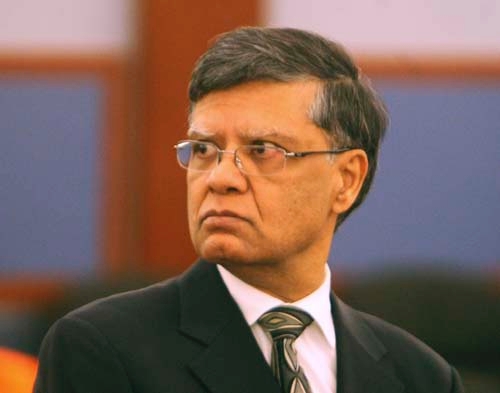Judge to rule on Desai evidence in hepatitis C case


Prosecutors and defense lawyers are far apart on how to proceed with a hearing next month to determine Dr. Dipak Desai’s competency to stand trial on criminal charges stemming from the hepatitis C outbreak.
District Judge Kathleen Delaney is to hold a hearing Tuesday to set the parameters for the Jan. 27 hearing. Medical experts from Lake’s Crossing, the state’s secure mental health facility in Sparks, found Desai competent to assist his lawyers, concluding he has been exaggerating the physical impairments caused by two strokes.
Desai’s lead lawyer, Richard Wright, who is fighting those findings, said in court documents last week that the defense, under constitutional due process rights, should be allowed to introduce independent expert testimony at the hearing to challenge the "methodology of evaluation" the Lake’s Crossing experts used.
"A legal determination of Desai’s present ability to stand trial is not simply a matter of adopting a medical or psychological diagnosis," Wright wrote. "It requires a contextual analysis of Desai’s present ability to sufficiently participate in the exercise of the above fair trial rights in light of the specific demands of the instant case."
But prosecutors in their court papers said state competency laws don’t allow for any additional witnesses to be called at the hearing.
"Thus, the state opposes any admission of evidence beyond questioning the doctors from Lake’s Crossing who completed a report on Desai and the questioning of any pre-Lake’s Crossing doctors," Chief Deputy District Attorney Pamela Weckerly wrote.
Last month, Delaney said she was inclined to limit the scope of evidence at the upcoming hearing.
But Wright is poised to argue strenuously Tuesday that Delaney should allow a broader hearing.
In his court papers, Wright said he "continues to express a bona fide doubt as to Desai’s competency."
Because of brain damage caused by the strokes, Desai lacks the ability to assist his lawyers in preparing his defense, Wright wrote.
He cited several examples.
Desai can’t sufficiently accept advice from his attorneys about which legal strategies to follow in the complicated criminal case, Wright said.
The 61-year-old gastroenterologist also can’t sufficiently recall critical facts of the case necessary to put on his defense, and he has trouble assisting attorneys in analyzing the massive amount of evidence, Wright said.
And Desai can’t help his lawyers prepare to confront key prosecution witnesses, as well as prepare to testify in his own defense, Wright added.
"Fundamental due process mandates that the defense have the opportunity to present relevant evidence independent of court-appointed experts," Wright wrote.
Weckerly, however, disagreed, arguing in her court papers that doctors at Lake’s Crossing thoroughly observed and evaluated Desai for months before coming to their conclusions that he was competent to face the criminal charges.
The Lake’s Crossing evaluators even sent Desai outside the facility for additional medical testing "to see if there was some other evidence that would change their opinion," Weckerly wrote. "The evaluation was extensive; the conclusion, of course was that Desai is competent."
Desai’s ability to assist his lawyers must be decided before his approaching trial date. Desai and two of his nurse anesthetists, Keith Mathahs and Ronald Lakeman, face a March 12 trial on felony charges, including racketeering, insurance fraud and neglect of patients.
The charges revolve around seven people who authorities say were infected with the potentially deadly hepatitis C virus at Desai’s clinics in 2007. Health officials disclosed the outbreak in early 2008.
Desai also faces federal charges.
He is to be tried May 22 with Tonya Rushing, his clinic manager, on one count of conspiracy and 25 counts of health care fraud.
A federal indictment alleged the pair carried out a scheme from January 2005 through February 2008 to inflate the length of medical procedures and overbill health insurance companies.
Desai has pleaded not guilty in that case, and federal prosecutors have not taken a position on his competency to stand trial there.
Desai has struck settlements in the massive civil litigation over the hepatitis C outbreak. But several cases are moving forward against the drug companies that distributed the sedative, propofol, used in the medical procedures that health officials believe caused the outbreak. Earlier this year, two juries handed out multimillion-dollar awards against the drug companies to people infected with the virus.
Contact Jeff German at jgerman@reviewjournal.com or 702-380-8135.












